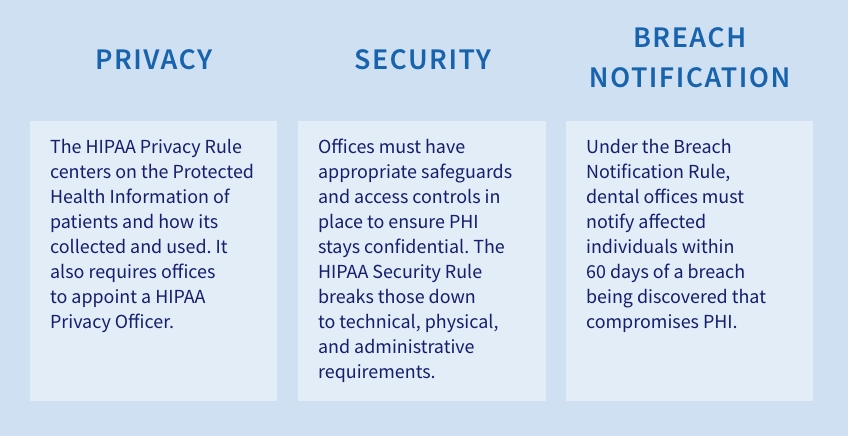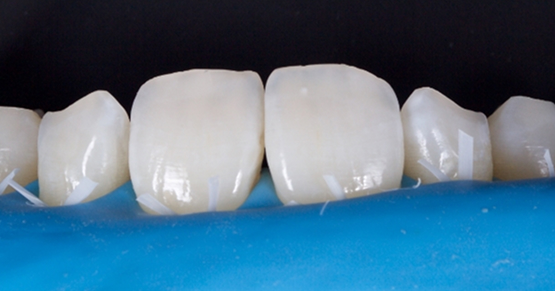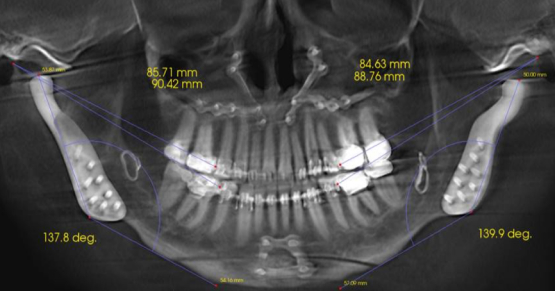
6 Dental Billing Laws Affecting Your Office
The No Surprises Act has the entire health care field scrambling to ensure policies align with new dental billing laws. While the act is one of the most recent to affect how we address patient billing, it is not the only one. Any time new legislation comes out, it is a suitable time to review all dental billing laws that could affect your office.
While the No Surprises Act is getting the most press out of all other dental billing laws, it is far from the only one you should worry about. Here are six that affect patient information and billing practices.
1. The No Surprises Act
The No Surprises Act addresses surprise billing for medical care typically received in an emergency. Someone suffering from a heart attack, for example, will not be able to make choices about whether they are taken to an in-network or out-of-network provider under their insurance plan. As a result, they could receive much more expensive care without their consent. The No Surprises Act is designed to address this problem.
Components of this act will affect dentists’ offices, and the Department of Health & Human Services has provided guidance. Most applicable to dental offices is the Good Faith Estimate and the Patient-Provider Dispute Resolution component of the law. This requires offices to provide good-faith estimates before treatment to uninsured or self-pay patients. It also establishes a patient-provider dispute resolution (PPDR) process for arguing charges.
2. The Health Insurance Portability and Accountability Act of 1996
Dental offices that transmit electronic health information in line with the Department of Health and Human Services standards must adhere to HIPAA. There are three specific categories to focus on:

HIPAA is an extensive, complex act that most dental offices will need to follow closely. Consulting with an attorney or expert is highly advised in establishing an appropriate compliance program.
3. The Affordable Care Act
Dental care is optional for adults under the Affordable Care Act, but it does mandate coverage for minors. Specifically, it qualifies minor dental treatment as an “Essential Health benefit.” Of course, dental offices have no power over the types of insurance their patients receive. However, it is important to note how the Affordable Care Act has expanded access to dental care, with increases in both coverage and utilization reported.
4. The Truth in Lending Act
While this act would apply to financial institutions, there are also instances where it could affect your practice’s billing. Some dental offices offer installment plans for their self-pay and non-insured patients. The Truth in Lending Act applies to offices that regularly extend credit or establish any plan with financing charges of more than four installments.
The act builds transparency into those relationships. It allows consumers to back out of deals within a certain window and requires financers to provide accurate, clear information on finance charges and APRs.
5. The Fair Debt Collection Practices Act
Dental offices must follow the Fair Debt Collection Act when pursuing past-due bills and when selecting third-party collection vendors. This act prevents debt collectors from using abusive, misleading, or unreasonable tactics. It limits when individuals can be contacted about debts and what methods can be used. It also outlines individuals’ rights concerning debt communications. Finally, it governs the legal process for disputing and validating debts.
Someone making debt collection calls on behalf of the office should be well-versed in these laws to avoid the risk of fines and penalties. It is also an extremely sensitive matter, so the person should have the right personality for handling disputes and conflict in general.
6. The Payment Card Industry Data Security Standard
Most dental offices take credit and debit cards from patients, and the ones that do not are exceedingly rare. The Payment Card Industry Data Security Standard is not a law. It’s a set of globally agreed-upon standards that govern how credit card data is managed. These standards cover things like storage, encryption, firewalls, anti-virus tools, and other methods of preventing credit card data breaches.
Staying Up to Date on Laws Affecting Dental Offices
Hundreds of laws could affect dental offices, outside of dental billing laws. It is hard for most dental offices to manage all these ever-evolving requirements.
It’s often helpful to buy technology to make these issues easier to manage and monitor. This is especially true regarding training. Your staff cannot follow laws they don’t understand, and you can’t fix knowledge gaps unless you know what those gaps are. HIPAA-compliant, comprehensive practice management technology is ideal for managing dental billing laws.
SPEAR NAVIGATOR
Transform how your practice runs by engaging the team through
coaching and training
A guided path to excellence through structured coaching and self-guided resources that will align your team, streamline processes and drive growth. Transform your practice by implementing Spear’s proven playbooks for developing and retaining a high-performing dental team.

By: Spear Team
Date: December 29, 2022
Featured Digest articles
Insights and advice from Spear Faculty and industry experts


